Quota in Govt Jobs: Too complex a system
The quota system in Bangladesh civil service is extremely complex and cannot be implemented ensuring proportionate representation of all sections of the society, according to two former top bureaucrats of the country.
The system has become unrealistic and it requires reform based on the current socio-economic and demographic structure of Bangladesh or it should be phased out, they said.
The district quota is not appropriate in this small country and the quota for women is a lot less than that of freedom fighters' and their wards. The five percent quota for the indigenous people has little effect on the communities' representation in the civil service.
Analysing the quota system of Bangladesh civil service and that of India, Pakistan, Malaysia, Nigeria, and South Africa, former cabinet secretary Akbar Ali Khan said there were 258 types of quotas in Bangladesh civil service and no other country in the world has such a system.
“It [Bangladesh] has the most complex system among the six countries studied and is undoubtedly one of the most complicated in the world,” he wrote in his book “Gresham's Law Syndrome and Beyond: An Analysis of the Bangladesh Bureaucracy.”
Terming implementation of the quota system extremely complicated and difficult, the Public Service Commission in its latest annual report suggested simplification of the system.
The current system is also unique as it allows one to reap the benefits of the quota more than once.
"There are quota provisions for castes, ethnic communities, and other backward classes in India but they can't enjoy the benefit twice or more," said former cabinet secretary Ali Imam Majumder.
He said children and grandchildren of freedom fighters, who entered the civil service using the quota, were getting government jobs under the system. "Once a person gets the benefit of quota, he or she [or their wards] should not be allowed to use it again. No other country allows this.”
Of the 56 percent jobs reserved for various quotas, 30 percent are for freedom fighters' children and grandchildren, 10 percent for women, 10 percent for people of underdeveloped districts, five percent for members of indigenous communities and one percent for the physically challenged.
FREEDOM FIGHTERS' QUOTA
Thirty percent jobs have been set aside for freedom fighters since the independence and the privilege has been extended to include their children and grandchildren, who together represent less than one percent of the population.
Experts argue that this quota was justified after the Liberation War but gradually fewer and fewer candidates were available.
“The quota for freedom fighters is disproportionately large when compared to their representation in the population and this is why adequate candidates from this category are not available,” said Akbar Ali Khan, also a former adviser to a caretaker government.
He argues that the constitution permits quotas only for sections of the society lagging behind, therefore it was difficult to make a case for the quota for freedom fighters.
The high number of freedom fighters' quota allocation impacts the 10-percent women's quota. They get a lot of candidates there than there are vacant posts, he added.
WOMEN'S QUOTA
The 10 percent quota for half the population has little impact on their representation in the civil service.
The percentage of women in government jobs has increased remarkably but it was not because of this quota. It was because 80 percent primary school teachers' jobs were reserved for women.
With more and more women getting into the civil service on merit, this quota is becoming less meaningful.
Akbar Ali Khan said of the 130 women recruited in the 21st BCS, 42 were on merit and the rest on quota. The recruitment on merit increased to 437 against 203 on quota in the 25th BCS.
“If women continue to perform so well in competitive exams, this quota is likely to become obsolete rather than a special facility for them,” he said.
DISTRICT QUOTA
It was designed to give jobs to people of districts underrepresented in the civil service. The 10 percent quota was effective when there were only 17 districts. It became less effective and disproportionate when 47 more districts were created in the 80's.
“The allocation of this quota is much more complex when the number of posts is low,” Akbar Ali Khan said in his book, adding that the constitution permits the use of quotas for adequate representation of sections of the society lagging behind.
“A district is not a unit of backward citizens. Rather, contains both backward and affluent citizens. So, the goal of district quota will be not served if the upper classes of a backward district are benefited by a quota system.”
Former secretary ATM Shamsul Haq-led 14-member Public Administration Reform Commission found district quotas counterproductive and discriminatory as larger districts get more posts while smaller ones are deprived. The commission said this in its report "Civil Service of 21st Century" submitted in 2000.
INDIGENOUS QUOTA
As per the constitution, the indigenous people, who are one percent of the population, deserve quota for being part of the society lagging behind.
But the government has been struggling to recruit people under this quota.
Comparing three BCS recruitments, Akbar Ali Khan in his book said two members of the indigenous communities were recruited through the 21st BCS exams when 8o1 people got jobs, four through 22nd BCS when 2,375 got government work, and five through the 25th BCS exams when 2,722 got into the civil service.
District quotas get in the way of indigenous candidates. Akbar Ali Khan said, “The present quota is hindrance for tribal candidates. Their priority in the district quota is the lowest; as a result, they would not get jobs even though their performance is better than other quota candidates from the district.”
POLITICAL WILL FOR REFORMS
Experts have long been calling for reforms but no real move was taken in this regard until July 2, when a committee was formed to look into the matter.
The last major reforms were made in 1985 when the government increased the merit-based recruitment to 45 percent from 40. In 2012, one percent quota for the physically challenged was introduced, reducing merit-based recruitment to 44 percent.
"Reforms can be made if an incumbent government wants it," Ali Imam Majumder told The Daily Star on Monday.
Akbar Ali Khan told The Daily Star, "Quota reform is long overdue but it was not done due only to the lack of political will. So, political will is a must for the reforms."
The seven-member committee, led by cabinet secretary M Shafiul Islam, is now working on quota system reforms. In its first meeting on Sunday, the committee decided to go through reports of previous committees and commissions regarding quota reforms. It will also go through systems in other countries before making its recommendations.
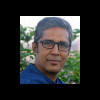
 For all latest news, follow The Daily Star's Google News channel.
For all latest news, follow The Daily Star's Google News channel. 

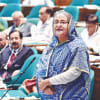
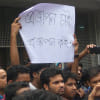
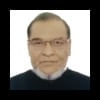
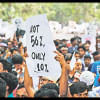
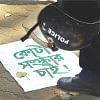


Comments